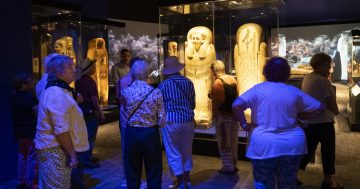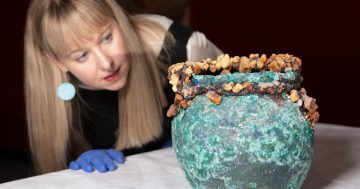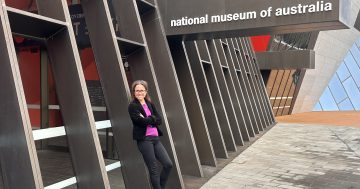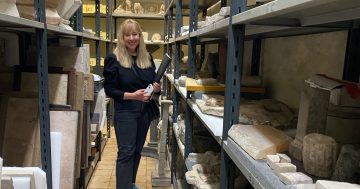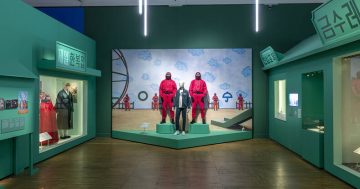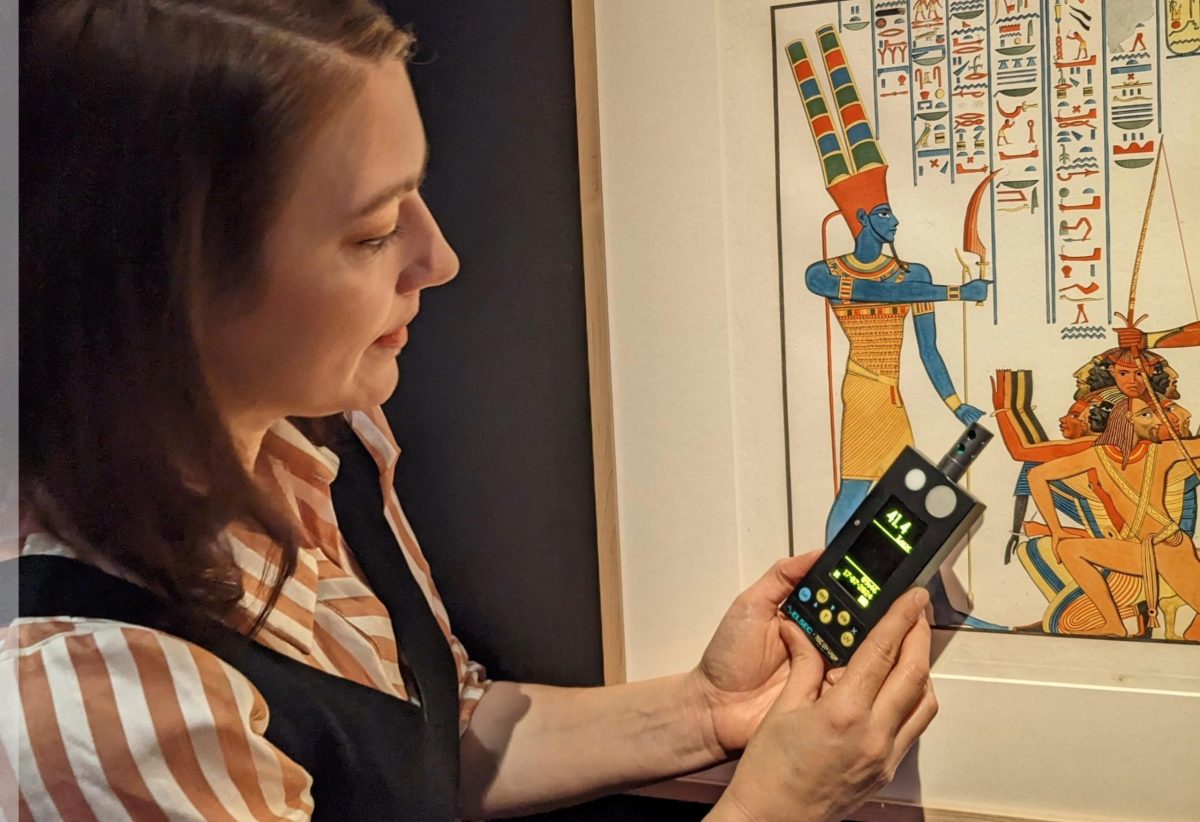
Kerryn Wagg began her museum career as a tour guide almost two decades ago. Photo: National Museum of Australia.
Kerryn Wagg thinks she has one of the most fascinating jobs in the world.
Her work day starts much like anyone else’s. She gets up, has breakfast, jumps into the morning commute … but that’s where the similarities end.
As soon as she walks through the National Museum of Australia’s front doors, Kerryn becomes the staunch protector of artefacts created thousands of years ago. But she wasn’t always the museum’s Senior Objects Conservator. In fact, she started as a student running exhibition tours.
“The building and the stories it told hooked me completely,” she says.
“I was lucky enough to study a Conservation of Cultural Materials degree at the University of Canberra while I worked here, and since then, the museum and its conservation labs have been my home away from home.
“Every day is slightly different. I have one of the most fascinating jobs in the world.”
Working across the National Museum’s public attraction in Acton and Mitchell storage sites, Kerryn’s job is to preserve the integrity of vintage vehicles, First Nations artefacts, famous art, and other historic objects that could otherwise be lost to time.
“For many objects, even the wrong heat, humidity or light levels could be harmful,” she says.
“They are absolutely precious and often very fragile. Some of the objects we work with are thousands of years old, so I spend a lot of time learning about the specific environmental and travel needs for every single piece.”
For Kerryn, this means checking on open displays in Acton before the museum opens, then heading to the conservation lab to prepare objects for display with condition checks or repairs, bespoke housing and protective storage.
Kerryn’s role has also allowed her to explore international museums through the sharing of Australian exhibitions such as the award-winning Songlines: Tracking the Seven Sisters. She travelled to Paris to oversee the exhibits’ care at the Musee du Quai Branly and liaised with other conservators on displays.
Songlines has also visited the Humbolt Forum in Berlin, Germany, The Box Plymouth in the United Kingdom, and will next be displayed at the Museokeskus Vapriikki in Tampere, Finland.
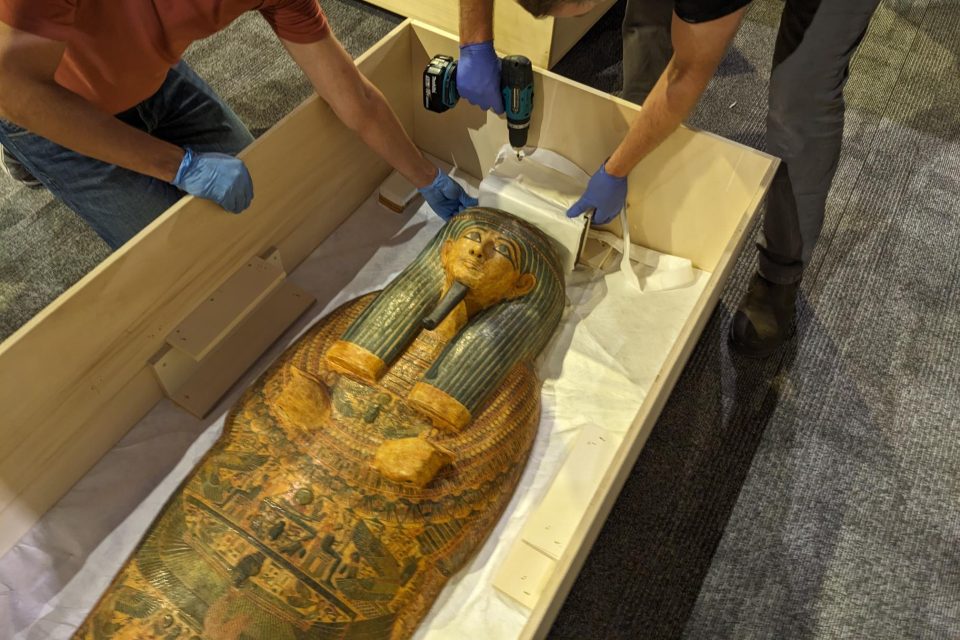
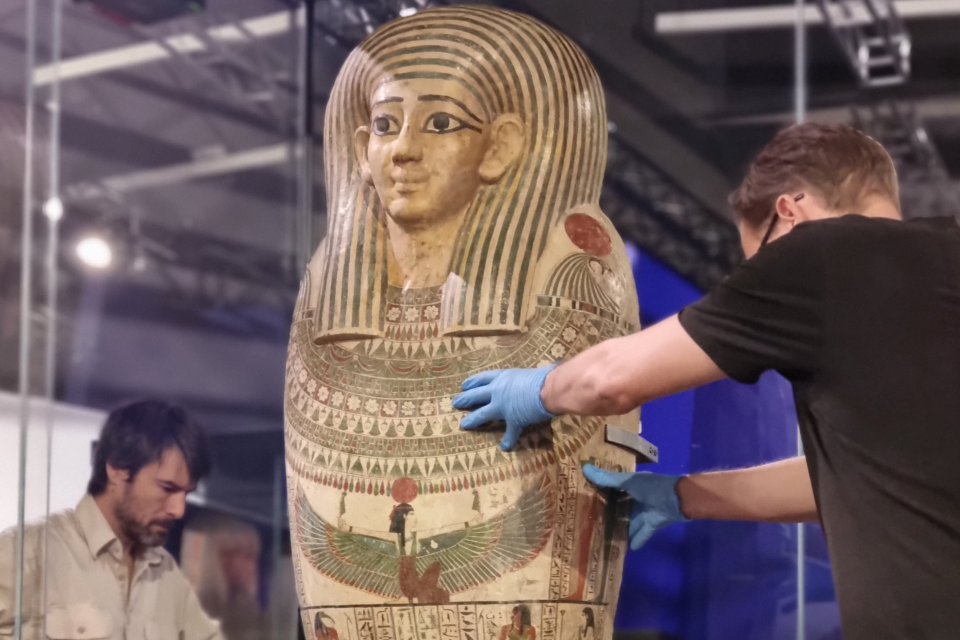
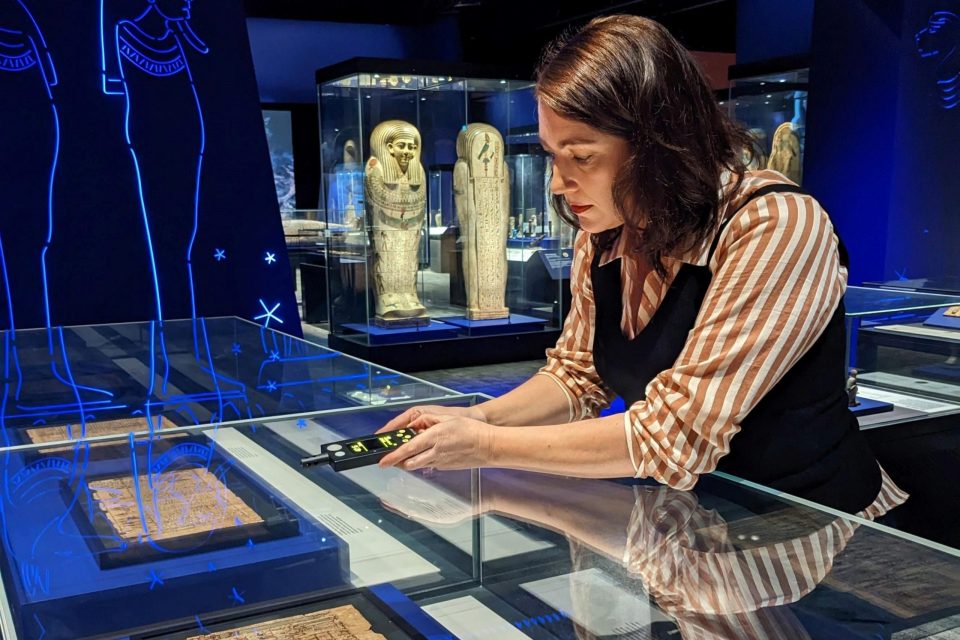
Another highlight of Kerryn’s career is currently shining. Her role has her working closely with the Discovering Ancient Egypt exhibition, visiting from the Dutch National Museum of Antiquities – Rijksmuseum van Oudheden.
Kerryn describes her first moments with the exhibition as ‘absolutely breathtaking’.
“Opening up those crates and seeing the precious artefacts they held for the very first time was quite unlike anything I’ve experienced in my career so far,” she says.
“There’s just so much to explore. Of course, displays of mummification grab your attention right away, but my eyes are drawn more to the tiny intricacies of a piece of jewellery or the Book of the Dead scrolls that were inscribed with such care thousands of years ago.
“It’s an opportunity to understand on a deeper level what the lives of ancient Egyptians looked like, what they believed in, and the impact those beliefs had on the rest of the world.”
Kerryn remains a fierce protector of museums and the objects within them. She hopes to see the next generation of conservators enter Australian museums with just as much passion.
“Museums are the storytellers for diverse nations, cultures, empires and past worlds. It’s an immense responsibility to ensure future generations will be able to interact with them, learn from them and enjoy them as I have.
“Being part of that comes with its fair share of problem-solving, but you get to do something different every day and meet fascinating people. I get a great sense of joy and fulfilment out of my job, so if you’re thinking about going for a similar role, I’d say go for it!”
Explore one of history’s most captivating cultures at the Discovering Ancient Egypt exhibition, hosted by the National Museum of Australia until 8 September.
Original Article published by Morgan Kenyon on Riotact.


